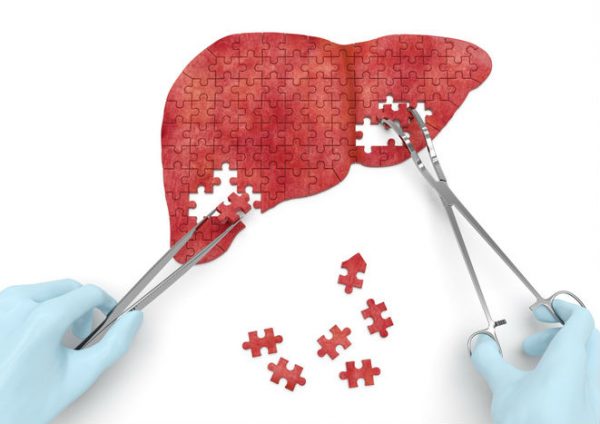

A drug in development for nonalcoholic steatohepatitis took a step closer to regulatory approval Tuesday with the announcement of positive results from a Phase III clinical trial, which analysts said could make it the first-ever NASH drug to win Food and Drug Administration approval.
New York-based Intercept Pharmaceuticals said the Phase III REGENERATE study of obeticholic acid in patients with liver fibrosis due to NASH met its primary endpoint of improving fibrosis by one stage or greater at the preplanned 18-month interim analysis. The 2,370-patient study is designed to enroll patients with Stage 2 or Stage 3 fibrosis, according to ClinicalTrials.gov, and the data announced Tuesday included 931 of them in the intent-to-treat, or primary efficacy analysis. Patients received obeticholic acid at 10mg, 25mg or placebo. REGENERATE showed a statistically significant improvement in fibrosis symptoms at both dose levels.
Shares of Intercept opened up 18.6 percent on the Nasdaq Tuesday following the news.
The results come a week after another NASH drug, Gilead Sciences’ selonsertib, failed in a Phase III study among patients with Stage 4 fibrosis. The results caused the drugmaker’s stock to fall 4.2 percent, in addition to feeding pessimism among analysts about the drug’s prospects in earlier stages of the disease. Another study, whose results are due in the second quarter of this year, tests selonsertib in NASH with Stage 3 fibrosis.
NASH, whose global incidence is rising alongside obesity and Type 2 diabetes, is expected to grow in market value from $1.17 billion in 2017 to $21.47 billion by 2025, according to a ResearchAndMarkets.com report. However, it currently has no approved treatments.
In a note to investors Tuesday, B. Riley FBR analyst Mayank Mamtani wrote that the strong Phase III efficacy results, along with a relatively clean safety profile, position obeticholic acid to become the first FDA-approved drug for NASH, which could occur as early as the first half of next year.
Last week, Cowen analysts Ritu Baral and Irina Margine wrote that they were cautiously optimistic about the data and that, if positive, they could support approval.
Intercept said it plans to file for approval in the US and in Europe in the second half of this year. It also plans to present the full results at the European Association for the Study of the Liver’s 2019 International Liver Congress, which takes place in April in Vienna.
Photo: Sakramir, Getty Images


















